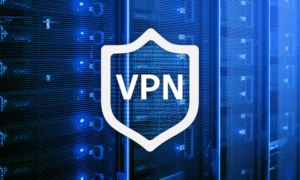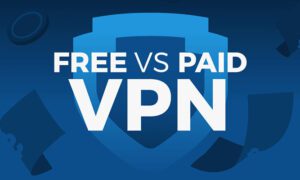With the threat of falling victim to a cybercrime continually looming in our lives, it’s easy to see why privacy and security are at the forefront of people’s minds when browsing the internet, especially when using public networks. Shockingly, there is one hacking attack every 39 seconds, which is why it’s as important as ever to protect yourself and your personal information.
The Linux & VPN debate
Linux is an open-source operating system that offers a great alternative to the proprietary software giants out there, such as Microsoft and Apple. The benefits of running Linux on your system are many. Thanks to the increased customizability and flexibility of the various Linux’ distros’, users enjoy improved speed, stability, and functionality on their devices.
However, one of the main benefits of running a Linux OS is the extra security and privacy it provides when compared to other operating systems. Linux users enjoy far greater control over the level of data they collect and share online, which means they are far less vulnerable to malicious attacks and privacy leaks. In addition to this, some Linux users claim that using a VPN is unnecessary as the protection the open-source software offers is already sufficient; however, this is far from the truth.
There are still several important benefits Linux users can enjoy from connecting their device to a secure offsite server via an encrypted connection. In this article, we are going to take a look at five of them.
If you want a native application
One of the main gripes people have with Linux is how difficult it can be to navigate and set up. After all, it is far less user-friendly than Microsoft and Apple’s operating software, for example. Even though most Linux users are more than capable of handling themselves around a computer console, it’s still far from a breeze to install a VPN without having the technical know-how.
Thankfully, there are a few companies that offer a native application for Linux devices. This makes installing your VPN as simple as downloading your particular distro application and takes all the hard work out of the equation.
If you frequently connect to public wifi
If you’re always on the move and connecting to wifi in different places such as coffee shops or libraries, a VPN is a must. Hackers sometimes lurk with sniffer programs in an attempt to intercept your data from public wifi, which means they can come away with sensitive information from your personal/work email and even your passwords.
Using a VPN prevents hackers from intercepting your information as your internet connection is encrypted. In addition to this, the VPN also prevents your internet service provider (ISP), the network owner, and all other 3rd parties from viewing the information you send over the network.
If you’re a remote worker or traveler
If you’re a remote worker, digital nomad, or someone who likes to travel a lot, you should really consider using a VPN while you’re away from home. For one, you’re more likely to use public networks, which, as we have just discussed, are not secure, which means your private data is at risk. Secondly, a VPN allows you to choose your geolocation and browse the web as if you were in a different location in the world.
This comes in handy when using video streaming services such as Netflix and Hulu, as you can watch shows from your home country that may not be available in your current location.
Regional restrictions and government censorship
Some places in the world are a little more strict regarding the websites you can view and the activities you’re permitted to perform online. A few notable examples include Turkey banning YouTube, China banning most social networks, and of course, North Korea who infamously places extreme censorship rules on its citizens.
Fortunately, VPNs allow you to tunnel through these restrictions and browse whatever content you wish, regardless of the restrictions. Organizations and governments can only block people from accessing ‘restricted’ content via their IP address, so using a VPN to appear as if you’re browsing from a different country is a simple fix.
Whether you’re a permanent resident in these places or just visiting, a VPN can help you get around these limiting restrictions and browse the internet openly while remaining anonymous.
If you want to save money online
Lastly, there are a few creative ways to save yourself some money using a VPN. Interestingly, if you use a VPN to change your geolocation to a lower-income country, you can sometimes grab yourself a better deal when booking flights and hotels.
Furthermore, you can take advantage of manipulated regional pricing and turn the tables in your favor, securing better deals on services such as Netflix, Spotify, and even expensive online software. Simply log in to different locations on your VPN and try some of the different country options to see where you can find the best deal.
So, what’s the best VPN for Linux users?
Honestly speaking, Linux users are pretty low down the priority list for VPN companies, and it’s easy to see why. According to statcounter.com, Linux made up for less than 1% of the global operating system market share over the last 12 months (Nov 2019 – Nov 2020).
This means the potential Linux customer base for VPN providers is pretty small. However, as we touched upon earlier, there are still a few companies that provide a dedicated Linux VPN with their own native app so you can enjoy secure web browsing with ease from anywhere in the world.



































